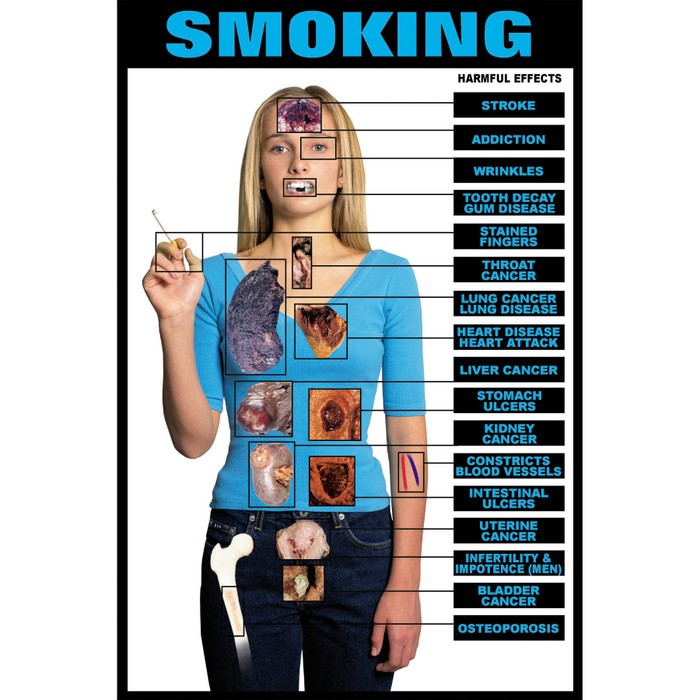
Contents
What Are 11 Bad Things About Smoking?
Smoking harms health, finances, personal life, and the health of others. Surveys and investigations have shown that smoking cigarettes poses several health risks.
Eleven negative side effects of smoking include:
- Cancer:
- Tobacco use is a primary cause of lung cancer worldwide. Carcinogenic particles in smoke increase the risk of malignancies in the lungs, head and neck, bladder, pancreas, kidney, uterus, and cervix.
- Autoimmune disorders:
- Smoking weakens the immune system, making the body more susceptible to infections and illnesses, including respiratory diseases and autoimmune disorders like rheumatoid arthritis and Crohn’s disease.
- Type II diabetes:
- There is a relationship between smoking and type II diabetes. Smokers are 30 to 40 percent more likely to develop the disease compared to nonsmokers.
- Aging and skin:
- Smoking affects appearance, increasing the risk of wrinkles. Smokers in their 40s may have as many wrinkles as nonsmokers in their sixties. Smoking can also cause pale and gray skin.
- Smoking and fertility:
- Smoking can cause infertility in both men and women. Secondhand smoke can also affect fertility. Smoking increases the risk of erectile dysfunction in men and delays pregnancy and early menopause in women. It can also impact the success of fertility treatments.
- Lung diseases:
- Smoking can cause chronic obstructive pulmonary disease, emphysema, chronic bronchitis, and lung cancer.
- Heart attack and stroke:
- Smoking constricts blood arteries, limiting blood flow to vital organs and increasing the risk of blood clots, heart attacks, and strokes.
- Complications for pregnant women:
- Pregnant women who smoke or are exposed to secondhand smoke have difficulties during childbirth and increase the risk of various congenital diseases in their children.
- Premature deaths:
- Smoking causes early death due to respiratory cancer and vascular disease. Smokers have a lifespan at least 10 years shorter than nonsmokers. Cigarette smoking is responsible for over five million deaths per year.
- Health dangers of secondhand smoke:
- Secondhand smoke contains hazardous metals, carcinogens, and dangerous chemicals that can harm non-smokers. Exposure to secondhand smoke increases the risk of various diseases and health issues.
- Air pollution due to smoking:
- Secondhand smoke contributes to air pollution as it contains carbon dioxide, methane, and other compounds. Smoking emits significant amounts of CO2 and methane annually, contributing to climate change. Secondhand smoke also poses indirect health dangers to others.
How smoking affects mental health?
When someone smokes, nicotine enters their brain in about 10 seconds, initially enhancing mood, focus, relaxation, and reducing appetite.
- Regular nicotine doses cause changes in the brain, leading to withdrawal symptoms when nicotine supply is depleted.
- Smoking momentarily alleviates withdrawal symptoms, reinforcing the habit, and most smokers become nicotine dependent.
Smoking and stress
- Some people smoke to relieve stress, but studies have shown that smoking increases anxiety and tension.
- Nicotine produces temporary relaxation, leading individuals to mistakenly believe it reduces tension and anxiety. However, withdrawal symptoms and cravings quickly follow.
- Smoking relieves withdrawal symptoms but does not address anxiety or underlying causes.
Smoking and depression
- Adults with depression are more likely to smoke, but it is unclear if smoking causes depression or vice versa.
- Nicotine releases dopamine, a neurotransmitter involved in happiness, potentially leading to temporary mood improvement.
- However, smoking impairs the brain’s dopamine production process, resulting in decreased supply over time and increased smoking.
- People with depression may struggle to quit smoking and experience severe withdrawal symptoms.
- If you decide to quit, remember that plenty of help is available and you don’t have to go through it alone.
Smoking and schizophrenia
- People with schizophrenia smoke more heavily as smoking may help manage symptoms and alleviate medication side effects.
- Smoking might increase the risk of schizophrenia, but further research is needed to understand the relationship fully.
QUESTION
What happens when you quit smoking?
You may notice the following benefits to your health:
- Within 20 minutes, heart rate and blood pressure return to normal.
- Within two to three days, sense of smell and taste improve.
- Within 2 to 12 weeks, breathing improves and exercise becomes easier.
- Within one year, the risk of heart attack is halved compared to that of a smoker.
Quitting smoking also has other benefits like fresher breath, whiter teeth, younger-looking skin, increased energy, improved immune system, enhanced sex drive and fertility, and protecting the health of loved ones.
It’s never too late to quit smoking. Men who quit before 30 may gain 10 additional years of life, and many individuals gain three years if they quit before 60. Being a nonsmoker improves the chances of staying physically active and healthy as you age.
It’s never too late to quit smoking. Men who quit before 30 may gain 10 additional years of life, and many individuals gain three years if they quit before 60. Being a nonsmoker improves the chances of staying physically active and healthy as you age.


